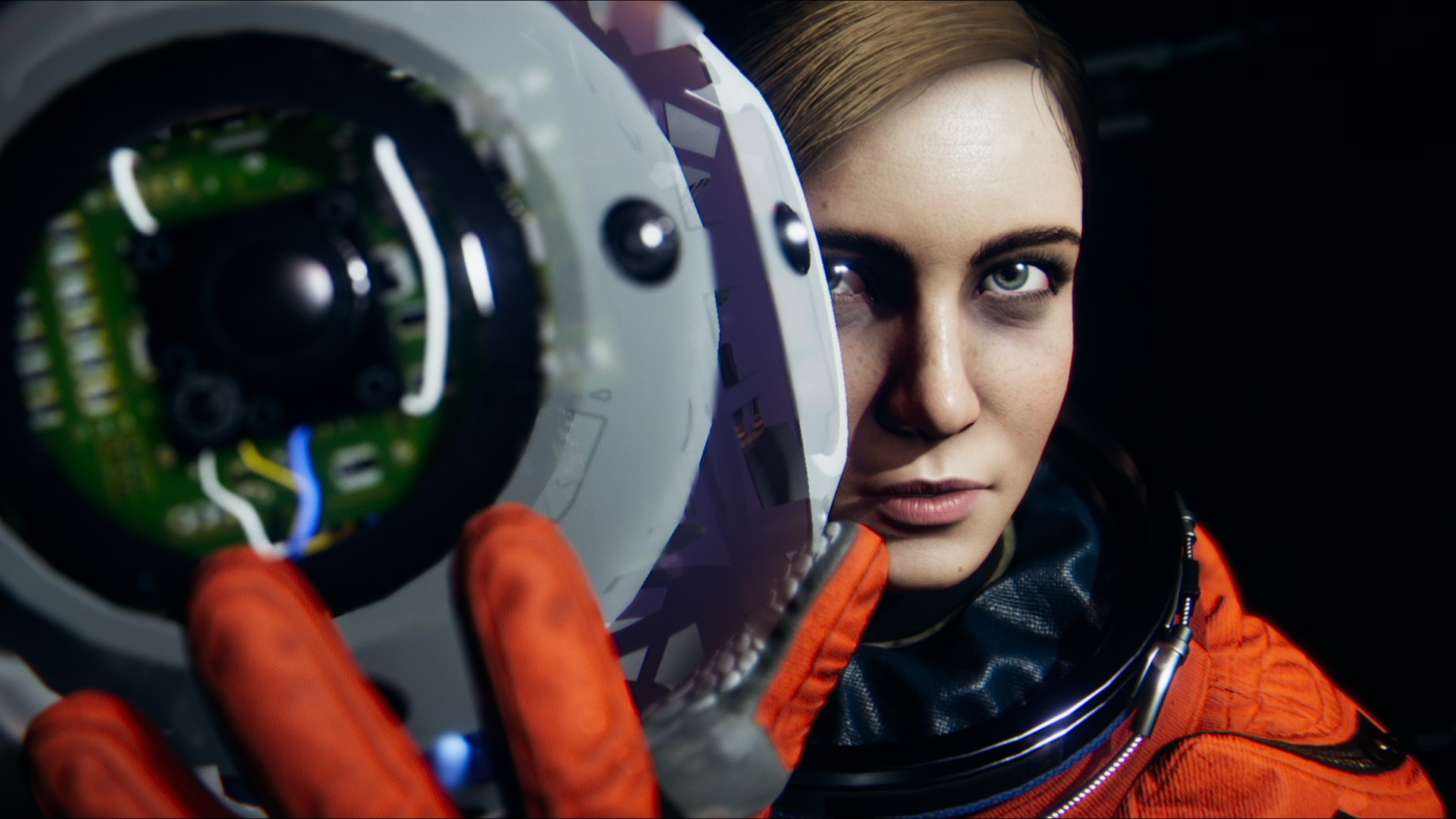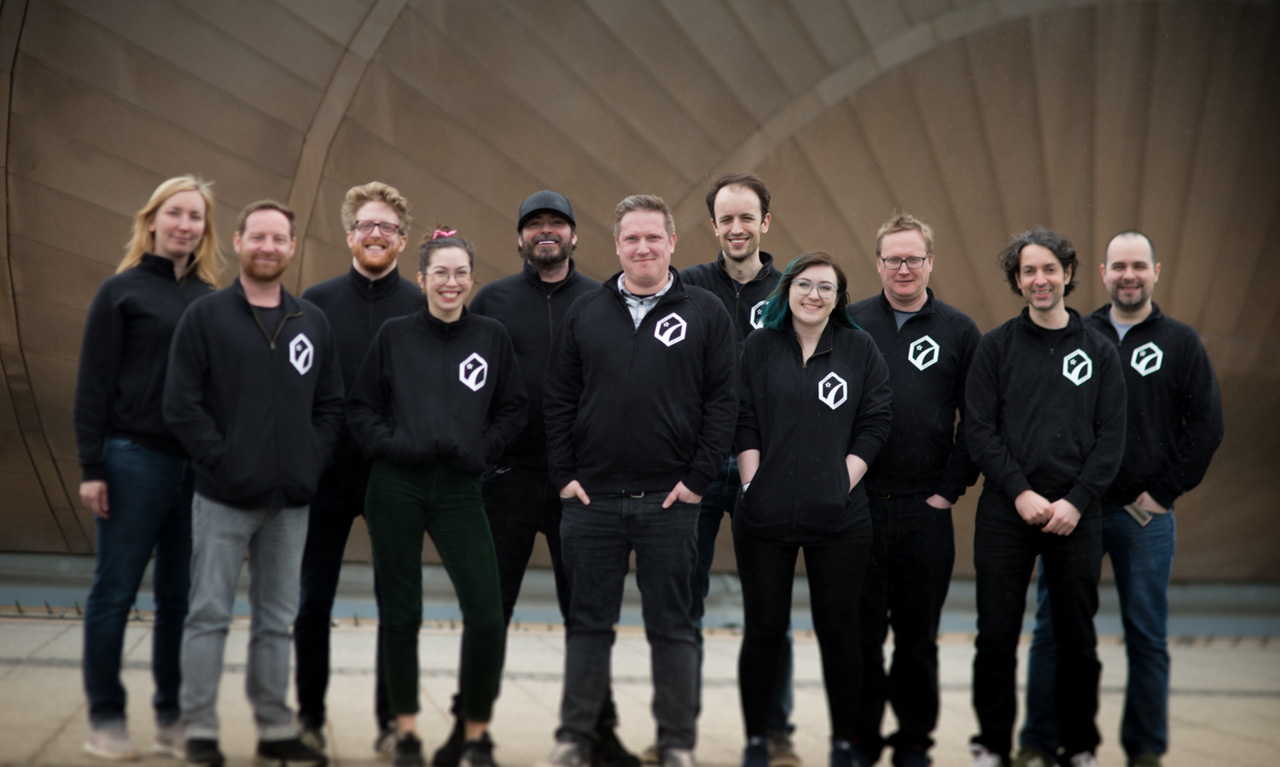Observation's devs tell us what it's like to release a game into the wild
It's quite scary, it turns out.

After years of pre-production, pitches, and prototypes, then 25 months of solid development, Glasgow-based developer No Code finally released sci-fi adventure Observation in May, 2019. I reviewed it for PC Gamer, calling it a "stylish, understated, and subtly chilling psychological thriller", and other critics shared my enthusiasm for the game, which sees you playing as an artificial intelligence aboard a stricken space station.
That’s a long time to work on anything, and I’ve always wondered: what does releasing a game feel like? So I asked Observation’s writer/director Jon McKellan, founder of No Code and former UI designer on Alien: Isolation, about the immediate aftermath of releasing a new videogame to the world.
"We were so guarded during development because we didn’t want story spoilers getting out," he says. "Then on release day you’re watching people playing it on Twitch and it feels wrong. You’ve kept this thing internal for so many years, and it’s been on your mind constantly, and suddenly it’s out in the wild. It’s a really bizarre feeling. The rules no longer apply."
No Code makes weird games. Its debut, horror anthology Stories Untold, was a supremely strange puzzle game based around a series of archaic machines. Observation sees you operating a space station as its governing AI. Nevertheless, both games have sold enough to keep the studio open—and it has, in fact, recently moved to a larger building to accommodate more staff.
Even so, towards the end of Observation’s development No Code was having something of a crisis of confidence. "You lose perspective when you’re working on a game, because you’re so close to it," says McKellan. "And in the last six months, all you’re doing is fixing all the imperfections. They’re brought to your attention every day, so it’s only natural that you start to lose confidence. You only see the bad things."
Critical mass
Observation currently sits at 79 on Metacritic for the PC version and 74 for the PlayStation 4 version. Not too shabby for a niche puzzle game about a malfunctioning computer. “We were really happy when the reviews came in,” says McKellan. "Then a couple of days later people started talking about it on social media and discussing the story. At that point it was clear the game wasn’t a total car crash after all. Maybe we got it right."
The first review of Observation the team at No Code read was from Game Informer, who scored it an impressive 9/10. "That wasn’t even a punch the air moment for us," says McKellan. "It was more like a massive sigh of relief. We can sleep now!" The game also received 9/10 reviews from Gamespot and Destructoid, although there were some lower scores too.
The biggest gaming news, reviews and hardware deals
Keep up to date with the most important stories and the best deals, as picked by the PC Gamer team.
When the game was launched on Tuesday, May 21, publisher Devolver Digital sent No Code a crate of celebratory champagne. "We decided to down tools," says McKellan. "We were burned out, so we ordered in food, drank champagne, and jumped between random Twitch streams. When someone solved a problem we’d all cheer, or groan when someone got stuck at something, taking a mental note that we might have to patch it."

But Observation’s development was far from over. The game underwent extensive QA testing, but when a game is released to the world, and is played on hundreds of thousands of different PC configurations, unexpected bugs are always going to pop up. "We had stuff like, ‘I’m playing on Windows XP with an ultrawide monitor and this weird thing just happened'," says McKellan. "I can’t even replicate that setup, let alone fix it!
"But by the time the game was released we’d been in bug fixing mode for half a year, so it was easy to stay in that frame of mind. It wasn’t like we started a new phase of development. We just kept going. It can be exhausting, but the joy of seeing people playing and enjoying the game balances it out. That keeps you going. It would have been much worse if the game was poorly received and we had to keep working on it."
I wondered if McKellan was frustrated or surprised by parts of the game where people were getting stuck or lost. "There weren’t many surprises, actually," he says. "A few months before Observation shipped we put the game through a series of focus tests. We had people test the game then submit a written report, and through that we worked out where the main sticking points were. Then we went into the game and changed a few things."
Final frontier
As for the future of Observation, I ask McKellan if he has any desire to tell another story in the space station he and his team spent so long researching and building. "We have a lot of pots on the boil at the moment," he says. "But we did get so used to spending time in that environment, and building it, that it feels a bit weird just throwing it away when you’re done with it.
"Our main takeaway from Observation is that we’re never making a zero gravity game ever again. We’ve been talking about the next game quite a bit and we’re all delighted that it has gravity. That’s like a feature for us."
No Code’s next game is currently unannounced, but it’ll be a step up from Observation in terms of scope. "We were at capacity towards the end of Observation’s development. So after the first couple of months of bug fixing and patches we decided to move. This gives us a lot more options. Now we’re in a much better place."
Subscribe to PC Gamer magazine
This article was originally published in PC Gamer UK issue 336. For more quality articles about all things PC gaming, you can subscribe now in the UK and the US.
If it’s set in space, Andy will probably write about it. He loves sci-fi, adventure games, taking screenshots, Twin Peaks, weird sims, Alien: Isolation, and anything with a good story.


